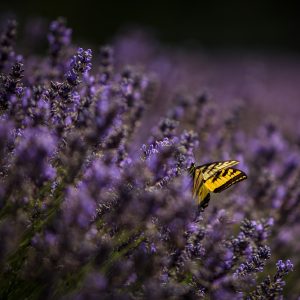Pollinator Conservation: The Crusader of Climate Reversal
 Pollinator Conservation will be an ongoing series leading up to the Great Georgia Pollinator Census event taking place on August 19th and 20th. In 2019, the University of Georgia Cooperative Extension set in motion the Great Georgia Pollinator Census as a citizen science research project inviting Georgians from across the state to come together for two days in August to document pollinator populations. This year, the project will welcome South Carolina to the pollinator data collection.
Pollinator Conservation will be an ongoing series leading up to the Great Georgia Pollinator Census event taking place on August 19th and 20th. In 2019, the University of Georgia Cooperative Extension set in motion the Great Georgia Pollinator Census as a citizen science research project inviting Georgians from across the state to come together for two days in August to document pollinator populations. This year, the project will welcome South Carolina to the pollinator data collection.
One out of every three bites of food is furnished by bees, wasps, butterflies, and other insects. Pollinators have a critical, but largely unappreciated, role to play when it comes to climate change. A breakfast of delicious life-sustaining amazing coffee, beautiful berries, and toast with creamy honey almond butter while overlooking the Atlanta skyline could be a thing of climate change past. Reducing carbon emissions is a priority but if we are going to reverse the effects of climate change, we need nature-based solutions, built on the conservation of biodiversity, to capture the carbon dioxide from the atmosphere. Without pollinators as allies, reversing the effects of climate change will be almost impossible.
Albert Einstein stated, “If the bee disappeared off the surface of the globe, then man would have only four years of life left. No more bees, no more pollination, no more plants, no more animals, no more man.” While most humans would survive, the effects would create a harsh living environment, malnutrition, extreme weather, and decreased oxygen, which will increase the mortality rate and decrease life longevity. A recent study suggests that as many as 40% of the world’s insect species are in decline. Scientists have recorded losses of up to 75% of the total mass of insects in protected areas. Almonds, apples, cotton, dairy products, medications, broccoli, carrots, pumpkins, squash, honey, and coffee are just a few things relying on pollinators. Grocery store shelves, which presently are struggling to keep up with demand, would carry half of the vegetables and fruits if pollinators were to become extinct. Creating a pollinator-friendly environment can help bees, butterflies, and other insects save our delicious coffee, fruits, and vegetables.
“Get on board or get left behind,” stated UN Secretary-General Antonio Guterres. “Those who fail to bet on the green economy will be living in a grey future. Those who embrace green technologies will set the gold standard for economic leadership in the 21st century.” Pollinator projects globally and locally are the nature-based solutions we need to begin reversing climate change. The Great Georgia Pollinator Census has done just that inviting everyone in Georgia to participate and be an important part of conserving pollinators. Data collected is used by educators of all levels, community leaders and members, and homeowners. To be a part of the solution visit the Great Georgia Pollinator Census and sign up to count your friendly life-preserving pollinators.
Next in the series, learn how to plant different styles of garden structures and beds with pollinator-friendly plants to coincide with your homeowner or business parcel guidelines.
How to participate in the Great Georgia Pollinator Census:
Teresa Perkins is a climate change and sustainability journalist, who is creating research-based climate change content pertaining to sustainable energy at local, national, and global level for publication and distribution. She partners with non-profit organizations for innovative ideas and sustainability projects and connects global UN Climate Change reports to local initiatives.





